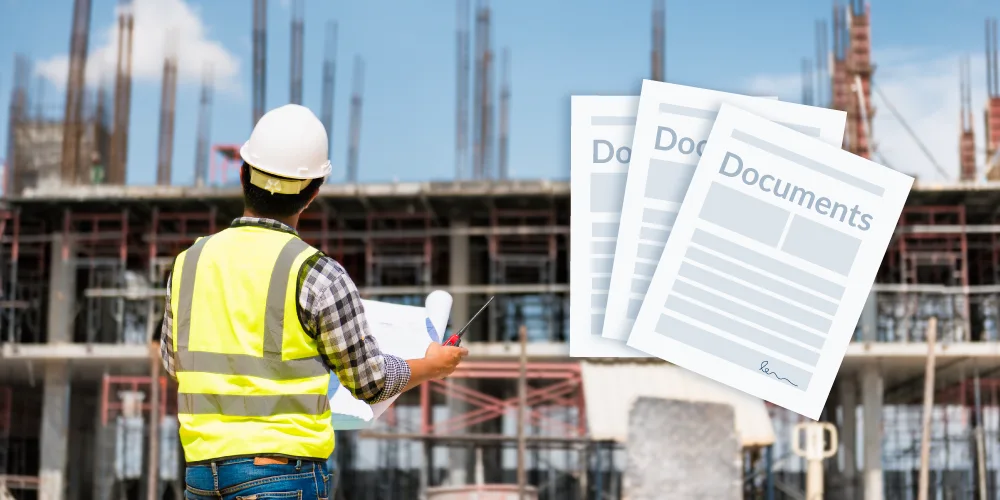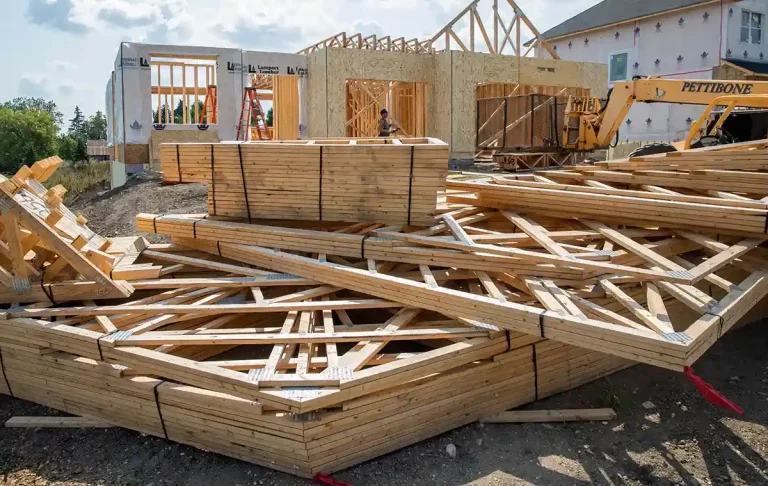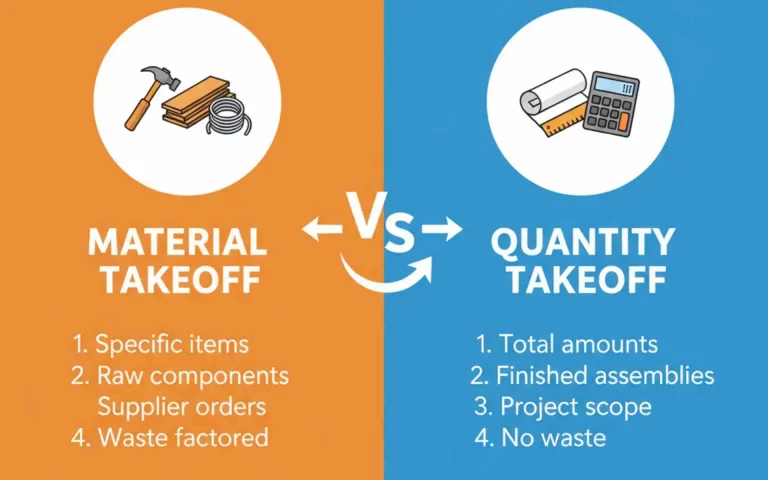What is the Difference Between an Estimate, Quote, Bid & Proposal?
In the construction industry, terms such as Contractor’s Quote, Estimate, Bid, and Proposal are familiar to many. A person who has no knowledge about this construction jargon will get confused. But in reality, that is not the case at all, as each of these terms has different meanings, purposes, and uses. Using construction terminology in the right way is important. On the other hand, if used incorrectly, it can damage your reputation and might also create trust issues with your client. That is why this article will discuss these terms in detail for you to have a better understanding of them.
READ THIS INFORMATIVE ARTICLE AND GAIN COMPREHENSIVE KNOWLEDGE ABOUT QUOTES, ESTIMATES, BIDS, AND PROPOSALS IN CONSTRUCTION.
Let’s have a look at each of these construction terms individually. This way, you will have a thorough understanding of how they differ.
A Contractor’s Estimate in Construction
A Contractor’s Estimate is a calculated approximation of the cost of a construction project. Yes, you guessed it right, a quote is a fixed price while an estimate can be changed or updated. On the basis of available information, a professional estimator will provide a guess about the expected costs for a project.
Know that an estimate can serve as a starting point for negotiations between an estimating firm and a client. Based on what a client wants, they will either perform Preliminary Estimating (these are performed in the initial stages to check whether a project will be) or Detailed Estimating services (if, from preliminary estimates, it is concluded that a project is financially practical, , then detailed estimates, which can include specialized areas, will be done.)
How Much Over an Estimate Can a Contractor Go?
A construction project is influenced by many uncontrollable factors, and on top of that, an estimate is guesswork based on the available information, as mentioned above. That is why it is important to account for a reasonable variance in the estimates. As a general rule, a reasonable range of 10% – 15% of the original estimate is set to deal with any unforeseen circumstances.
Let’s get to the next component of this article, which is a Quote.
What is a Quote in Construction?
A Contractor Quote is a fixed price quotation for a specific set of services in construction. Note that this document is considered a legal document and communicates the aspect of costs to a potential client.
When are quotes used?
These are primarily used when a client requests pricing information for certain services in construction.
Scenarios where Quotes are commonly used:
- If a client demands customized services
- It is a viable choice in small-scale construction projects
- In Business-to-Business transactions, to negotiate better pricing for services
- The next component that we are going to discuss is bidding in construction.
Bid in Construction
A formally structured document that outlines the details of a construction project submitted by a contractor. It acts as a competitive offer or a response to a Request for Proposal from a client. Let’s have an in-depth look at what it is.
Understanding What a Bid Means
Bids are used in construction when a client is choosing from a pool of firms for their project. This means that they want to select the most suitable one for their project. Note that a bid is completed differently from a Contractor Quote or estimate. The reason behind this is that it includes thorough planning about the costs, materials, and methods for executing a construction project. Apart from that, there are certain types and processes that must be followed when it comes to bidding.
Types of Bids – Open, Closed, & Negotiated
- In an open bid, the project owner publicly advertises their construction project. This means that any qualified contractor can submit a bid
- In a Closed or selective bid, a client chooses a specific group of contractors to bid on their project
- In negotiated Bids, a client will directly negotiate with a contractor because of their experience or pre-existing relationship.
How does the Bidding Process Work?
- First, a client will prepare a tender document that outlines the scope of a project and specifications. It will also include contractual terms
- Second, a buyer advertises the tender in any way they see fit. Thus, inviting potential contractors to submit their bids
- Third, contractors who are selected will prepare their bids based on the tender documents. This document will include information such as relevant qualifications, pricing, and timeframe
- In the fourth step, the bid is evaluated. This evaluation will be done by keeping in mind the criteria outlined in the tender document
- The final step is the bid selection based on the evaluated results
- At this stage of the article, you have obtained knowledge about a Contractor quote, estimate, and bid. Now, we will discuss what proposals are.
What Is a Proposal in Construction?
It refers to a document that outlines an extensive plan or offer to a potential client. It can be a persuasive tool that points out how capable a firm really is. As it shows that your methodologies can meet a client’s needs optimally. This document encompasses details, such as a project’s scope, a Budgetary Quote for the project, level of customization, and other terms and conditions.
When Should You Submit a Proposal Instead of a Bid?
A proposal is submitted instead of a bid when a project is too complex. It is also implied that a client demands customizations or seeks a tailored methodology, specific to their project.
If you want to emphasize your firm’s abilities, your client-tailored approach, and value proposition, then a proposal is submitted. Conversely, a bid usually focuses only on price and the scope of a project.
CONFUSED ABOUT THE ESTIMATE, CONTRACTOR BID, AND PROPOSAL? THEN GO THROUGH THIS ARTICLE TO ENHANCE YOUR KNOWLEDGE TODAY!
Now, you have a thorough understanding of all the terminologies that are commonly used in the construction industry. There is no doubt their understanding is crucial, but it is also important to know the best practices to carry out construction projects. They assure that your construction project is consistent and stays on the right track.
Best Practices to Implement in Construction Projects
Other than the documentation, as mentioned earlier, other essential best practices in construction are as follows:
1) Outsourcing
A cost estimator can help draft a bid. They’ll do most of the heavy work, so you won’t have to worry about a thing. You are more likely to land more jobs after outsourcing, as estimators present an accurate budget.
2) Handling Change Orders and Cost Transparency
Make sure that the contract drafted has clear and well-defined terms. Continually review the construction plans and keep a track of everything. Provide the client with detailed documentation about construction costs and items. By using these strategies, it becomes easier to get a grip on change orders.
3) Software
Using software not only helps to decrease human calculation error but also helps to schedule things. Software is very useful in construction projects.
Final Words
The key to drafting an excellent contractor quote lies in the estimate. The accuracy of cost projections matters a lot. It makes sure that the project goes in smoothly and your profit doesn’t get affected. Most amateur contractors may make the mistake of bidding too low, thinking that they’ll get more jobs, but that is not the case. Most clients tend to eradicate too high or too low bids at first glance. So it’s better to keep your prices competitive and stay in the middle. The second thing is that your proposal should be clear, precise, and professional. Do not add any irrelevant information about the project, and it’ll make you seem incompetent. Just stick to the plan and you’ll be fine!
FAQs
How essential is it to use these documents in construction?
However, it is not compulsory to use them in construction. But it is advised to use them, as they provide clarity and protection.
Do these documents involve any legal compliance?
Using Quotes, Estimates, Bids & proposals comes with specific legal compliance that must be adhered to.
Can these documents apply to any level of a project?
These documents can be applied to any level of a project, whether residential or commercial.
Can software be used in preparing these documents?
All of these documents can be prepared more efficiently by using relevant construction software
Is document management essential while preparing Quotes, Estimates, Bids, & Proposals?
Managing documents is a necessity during the preparation of these documents. As it helps maintain an organized record that provides you with easy access.







